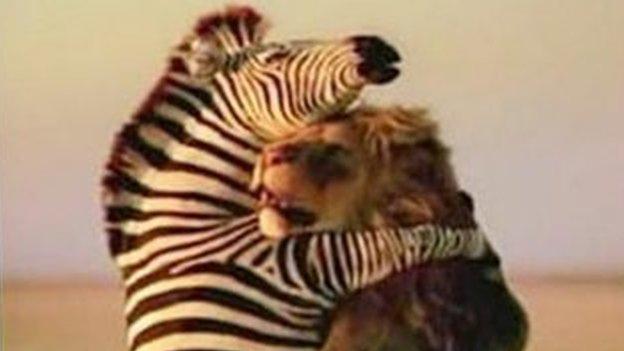Cecil the lion's killer a good man, says Zimbabwe hunter
- Published
Theo Bronkhorst called the legal proceedings against him 'crazy'
The US dentist who killed a lion in Zimbabwe did nothing wrong and was a "good man", according to the hunter who led the controversial expedition.
Theo Bronkhorst made the remarks after his trial for failing to prevent an illegal hunt was postponed.
He said the case was "crazy" and the permits to kill Cecil the lion outside Hwange National Park had been obtained.
The killing in July has caused outrage around the world and the dentist, Walter Palmer, is in hiding.
Protests have been held outside his dental clinic in Minnesota and vandals spray-painted "lion killer" on the garage of his holiday home in Florida earlier this week.
Zimbabwe's Environment Minister Oppah Muchinguri has called for Mr Palmer to be extradited to face charges.
'Frivolous prosecution'
As he left the court in Hwange town, in north-western Zimbabwe, Mr Bronkhorst defended the American.
"I feel sorry for [Mr Palmer]. He is a good man. He did nothing wrong," he was quoted as saying by AFP news agency.
He also attacked the legal proceedings as "frivolous" and said hunting was "integral" to Zimbabwe and had to continue.
"If we do not use wildlife sustainably there will be no wildlife," the professional hunter said.
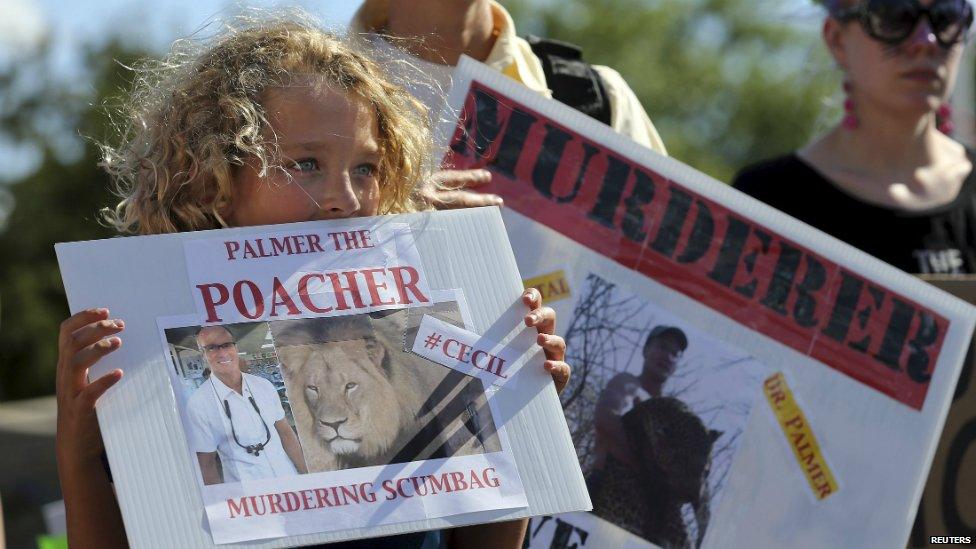
Walter Palmer, who killed Cecil, said he had no idea the lion was a "local favourite"
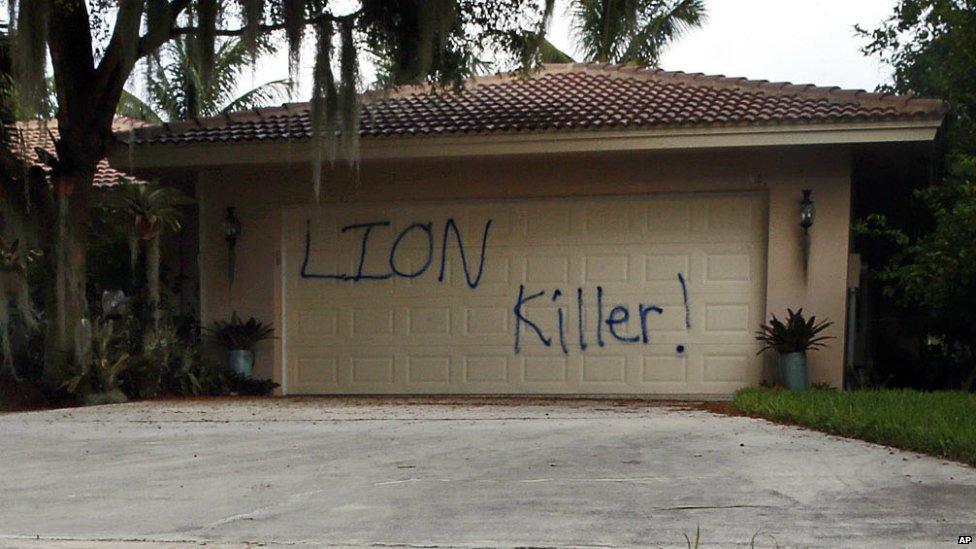
Vandals spray-painted "lion killer" on the garage of Mr Palmer's holiday home in Florida
The trial of Mr Bronkhorst was postponed on Wednesday to give his legal team more time to prepare their defence. If convicted, he faces up to 15 years in prison.
Mr Palmer is believed to have paid about $50,000 (£32,000) to hunt down Cecil, a major tourist attraction at Hwange National Park - Zimbabwe's largest game reserve.
Ms Muchinguri says Mr Palmer's extradition is being sought so that he can "be held accountable for his illegal action". The US is yet to respond to the request.

Cecil the lion
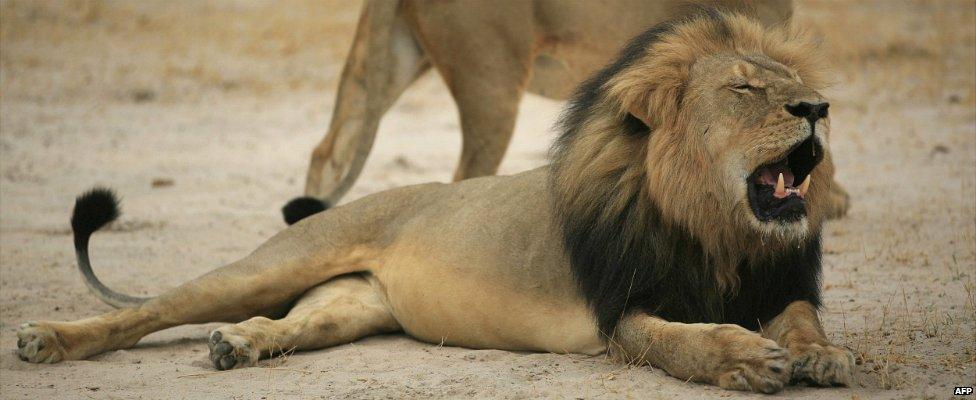
A major tourist attraction in Hwange National Park
The 13-year-old animal was renowned for being friendly towards visitors
Recognisable because of his large size and distinctive black mane
Led two prides containing six lionesses and 12 cubs along with another lion, Jericho
Was being monitored as part of an Oxford University study into lion conservation
- Published4 August 2015
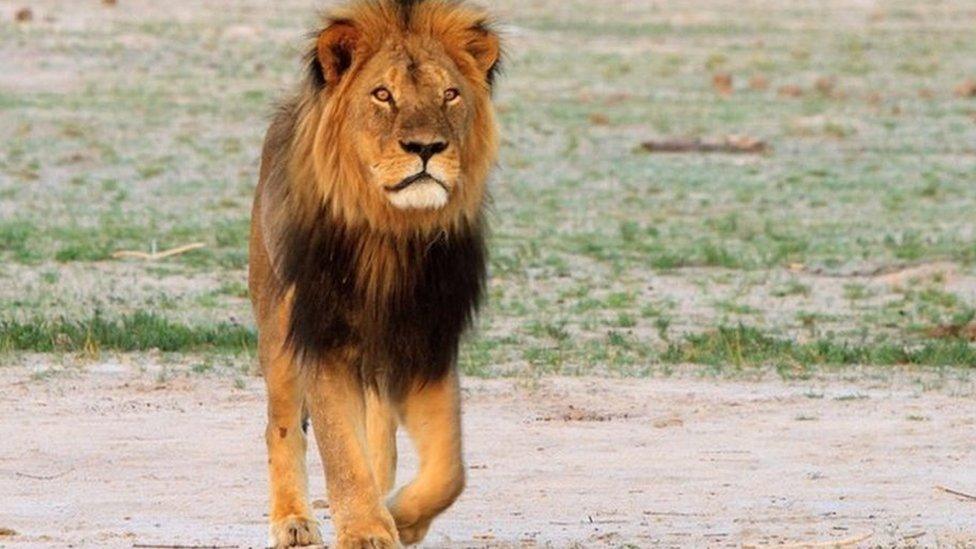
- Published30 July 2015
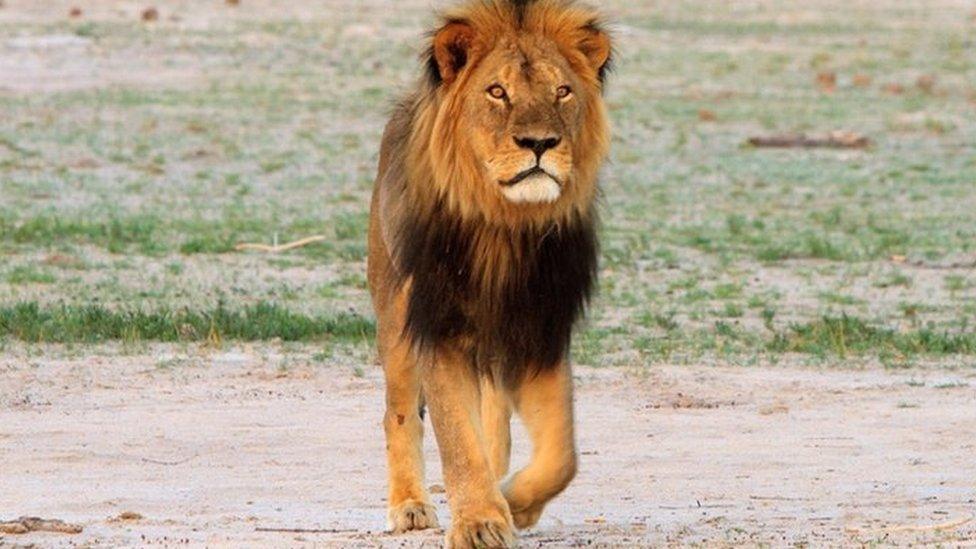
- Published1 August 2015
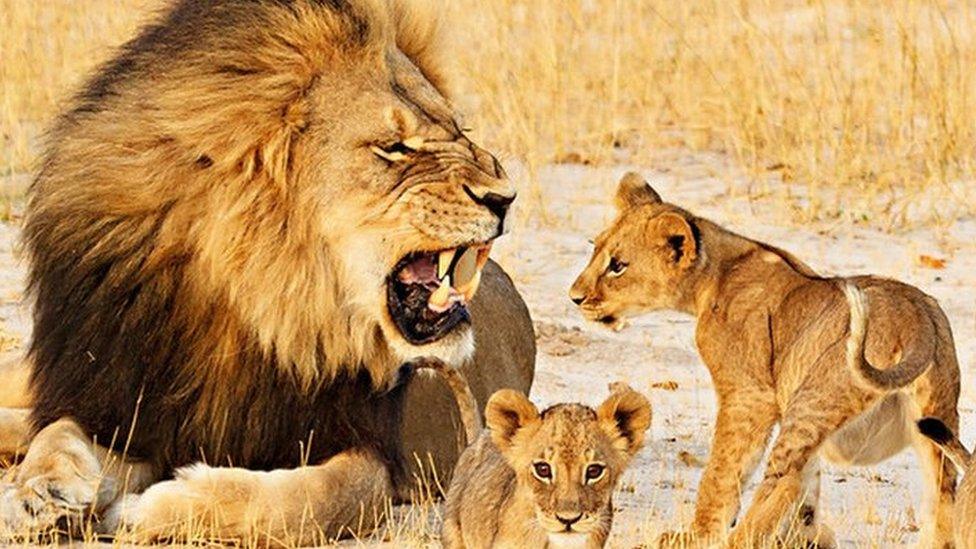
- Published29 July 2015
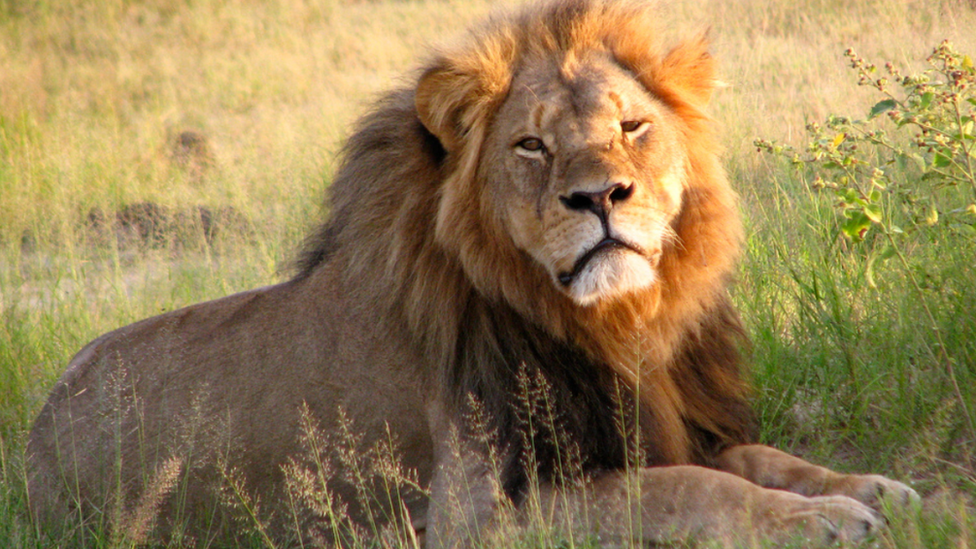
- Published29 July 2015
